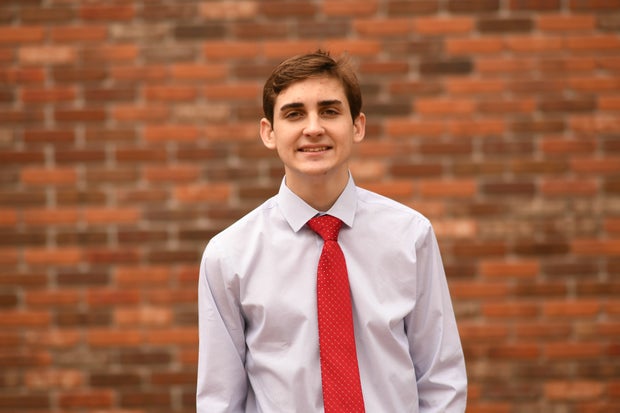[ad_1]
San Francisco — When it comes to dealing with a Florida college student who uses public data and social media to track the private jets of billionaires, politicians and other celebrities, Taylor Swift apparently can’t just shake it off.
In late December, Swift’s camp hit Jack Sweeney, a junior studying information technology at the University of Central Florida, with a cease-and-desist letter that blamed his automated tracking of her private jet for tipping off stalkers as to her location. In the letter, attorneys from the law firm Venable accused Sweeney of effectively providing “individuals intent on harming her, or with nefarious or violent intentions, a roadmap to carry out their plans.”
Allen Tedder / Tedder Photograph
Sweeney provided the link to that letter in an email to The Associated Press. In that message, he emphasized that while he has never intended to cause harm, he also believes strongly in the importance of transparency and public information.
“One should reasonably expect that their jet will be tracked, whether or not I’m the one doing it, as it is public information after all,” he wrote.
A spokesperson for Swift echoed the legal complaint, saying that “the timing of stalkers” suggests a connection to Sweeney’s flight-tracking sites. The spokesperson didn’t respond to questions seeking elaboration of that charge, such as whether stalkers have been seen waiting for Swift at the airport when her plane arrived or, alternatively, if there is evidence that stalkers have somehow inferred Swift’s subsequent location from the arrival time of her flight.
The legal letter likewise accuses Sweeney of “disregarding the personal safety of others”; “willful and repeated harassment of our client”; and “intentional, offensive, and outrageous conduct and consistent violations of our client’s privacy.”
Such statements are difficult to square with the fact that Sweeney’s automated tracking accounts merely repackage public data provided by the Federal Aviation Administration, a government agency. That fact did not dissuade the Venable attorneys, who demanded that Sweeney “immediately stop providing information about our client’s location to the public.”
The Swift spokesperson didn’t reply to a question inquiring whether the attorneys had issued the same demand to the FAA.
At one point, Sweeney had more than 30 such accounts on Twitter, now known as X after Elon Musk purchased the site for $44 billion in 2022.
Musk subsequently had his own dustup with Sweeney, tweeting at one point that his commitment to free speech required him not to ban Sweeney’s elonjet account even though he considered it “a direct personal safety risk.”
But it wasn’t long before Musk abruptly about-faced and effectively banned the student from X, accusing Sweeney of endangering his personal safety.
In March 2022, Sweeney was also publicizing the movements of private jets owned by Russian oligarchs on what was then known as Twitter.
“It would be pretty cool to see one of their planes seized,” Sweeney, 19, told CBS MoneyWatch in discussing his account, @RUOligarchJets, or Russian Oligarch Jets.
Sweeney said the account was based on an algorithm he developed that taps publicly available records of jet ownership and flight data to track about 30 private jets belonging to Russian oligarchs.
[ad_2]
Source

